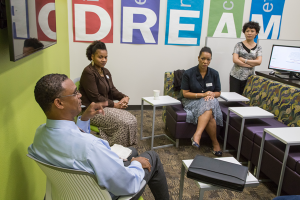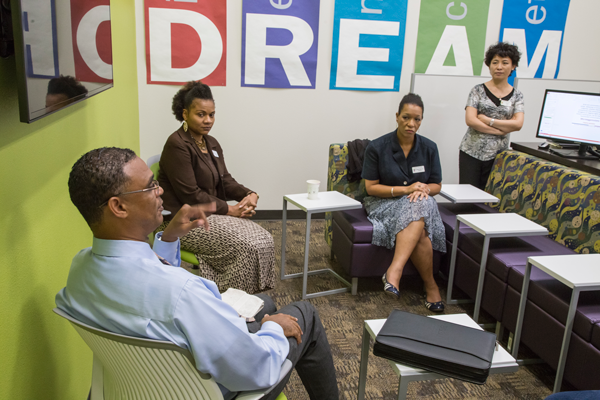
By Jamil Oakford/se news editor
SE Campus’ diversity and inclusion council is trying to take a stand against offensive language on campus.
In response to a 2010 diversity survey conducted on all TCC campuses, SE Campus decided that its focus needed to be on using inclusive language.
“Our focus is on offensive language and expressions made around campus,” sociology associate professor and council co-chair Garrison Henderson said.
SE’s council came up with a three-year action plan to address offensive language or what has been described as micro-aggressions.
“The action plan is done in phases,” SE academic advisor and co-chair Rhonda Hudson said.
SE was the first among the campus councils to complete its action plan and even served as a model for other campuses to complete their own.
“This was really collaborative,” district director of institutional diversity and inclusion Shani Barrax-Moore said. “The initial draft was written with the council. Faculty, staff and administrators were then able to work on it.”
The council synthesized all the input and drew up a complete action plan that’s already been approved by campus president Bill Coppola.
“This will be a living, breathing document,” Barrax-Moore said.
The council has written this document to allow any amending necessary as new information arises.
The first action the council is taking this academic year is a re-survey on SE Campus.
Hudson explained that the survey will help the group gain further clarity of what offensive language actually means to SE students. What is offensive to one person may not raise an eyebrow for another person.
The council has taken small steps to try and implement a few changes, some steps as early as the summer break.
“Before school started, we presented this to instructors,” instructional associate Vivian Lu said.
Lu explained that the council explained what diversity surveys had shown.
“The faculty reaction was positive and receptive to what we had to present,” Henderson said. “The faculty was very engaged.”
He also pointed out that faculty members have had to deal with this issue.
“Sociologists are pretty comfortable dealing with this,” he said.
SE’s action plan includes speakers, library displays and student-facilitated discussions.
The council is currently receiving training for a focus group it will put together once the second round of surveys are complete. It’s also planning to train employees to deal with inclusive language in the first week of the 2015-2016 academic year.
With the amount of diversity on SE, the council is working to make sure no one feels as though they can’t be who they are.
“It doesn’t matter how diverse a campus is. If micro-aggressions exist, whether it’s intentional or unintentional, it has a direct effect on student success,” Barrax-Moore said.
Defensive end Michael Sam, the National Football League’s first openly gay player recently added to the Dallas Cowboys roster, is an example of someone who has succeeded in being his true self, she said.
“He doesn’t have to worry about people knowing if he’s gay or not,” she said. “He’s free to be himself.”
And being free to be one’s self is a slogan that all the college’s campuses embrace, Barrax-Moore said.
“We don’t want students to feel like they have to leave a part of themselves at home,” she said.

